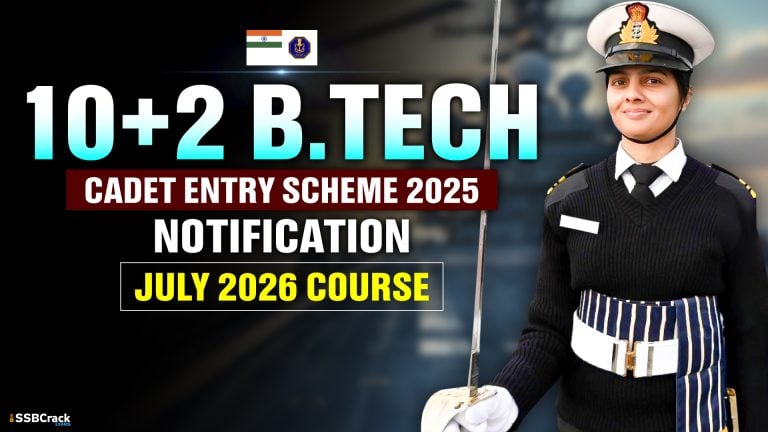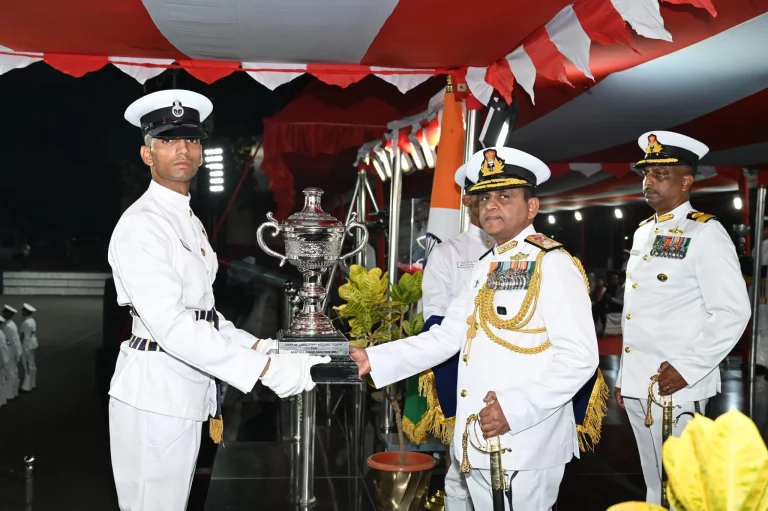The Merchant Navy Entrance Exam is a crucial step for aspiring sailors, testing their knowledge in subjects such as Mathematics, Physics, English, and General Knowledge. To succeed, it is essential to study diligently, practice with previous exam papers, and understand the exam format thoroughly. This article will provide eight effective tips to help you prepare and excel in the Merchant Navy Entrance Exam.
Understanding the Merchant Navy Entrance Exam
The Merchant Navy primarily involves commercial shipping operations. To enter this field, you must pass various entrance exams, demonstrate proficiency in certain subjects, be physically fit, and meet specific age criteria. Common exams include the Indian Maritime University Common Entrance Test (IMU CET), JEE Main, and TMI-BITS-EE.
For the 2023 Merchant Navy Admission, completing high school and applying for undergraduate programs like B.Tech in Marine Engineering or BBA in Shipping is typically required. Prominent institutions for these courses include Tolani Maritime Institute (TMI) and Samundra Institute of Maritime Studies.
Merchant Navy Entrance Exam Overview
| Aspect | Details |
|---|---|
| Purpose | To select candidates for various merchant navy-related courses. |
| Eligibility | High school education with subjects like Physics, Chemistry, and Mathematics. |
| Age Limit | Minimum age: 17 years; Maximum age varies but is often around 25 years. |
| Entrance Exams | IMU CET, JEE Advanced, All India Merchant Navy Entrance Test (AIMNET). |
| Subjects Tested | Mathematics, Physics, English, General Knowledge. |
| Top Colleges | Tolani Maritime Institute, Samundra Institute of Maritime Studies, International Maritime Institute. |
| Required Skills | Decision making, teamwork, practical knowledge of sciences, leadership, effective communication. |
| Salary Range | Starting: INR 4,50,000 to 5,50,000 per annum; Experienced: Up to INR 37,00,000 per annum. |
8 Effective Tips to Crack the Merchant Navy Entrance Exam
1. Plan Your Preparation
Planning is the cornerstone of effective exam preparation. Start by understanding the complete syllabus for the Merchant Navy Entrance Exam. Break down the syllabus into manageable sections and allocate specific time slots for each topic. Setting realistic study goals and creating a balanced timetable can help you avoid burnout and stay on track.
2. Practice Regularly
Regular practice is essential for success. Solve previous years’ question papers to become familiar with the exam pattern and types of questions. Taking mock tests will help you assess your strengths and weaknesses, allowing you to identify areas that need improvement. Consistent practice will also build your confidence for the actual exam.
3. Master the Basics
A strong foundation in key subjects such as Mathematics, Physics, and English is crucial. Review your high school textbooks to refresh fundamental concepts, formulas, and rules. Strengthening your basics will provide a solid footing to tackle more complex problems during the exam.
4. Learn Shortcuts and Tricks
Time management is critical in competitive exams. Learning shortcuts and tricks to solve problems quickly can significantly improve your efficiency. Identify common patterns in questions and practice applying shortcuts to solve them faster without compromising accuracy.
5. Stay Updated
The maritime industry is dynamic, with new developments, regulations, and technologies emerging regularly. Stay informed about current affairs related to the maritime industry by reading industry publications, following relevant news websites, and attending seminars or webinars. Questions based on recent events may be included in the exam, so staying updated will give you an edge.
6. Seek Guidance
If you find certain topics challenging or need additional support, consider enrolling in a coaching institute or seeking guidance from experienced mentors. Qualified instructors can provide valuable insights, tips, and strategies to help you navigate through difficult concepts and optimize your study approach.
7. Practice Time Management
Effective time management during the exam is essential. Practice solving questions under timed conditions to improve your speed and accuracy. Learn to prioritize questions based on their difficulty and allocate time accordingly to ensure you cover the entire syllabus within the allotted time frame.
8. Stay Confident and Calm
Maintaining a positive attitude and staying calm during the exam can significantly impact your performance. Trust in your preparation and abilities. Avoid panicking if you encounter difficult questions. Take deep breaths, stay focused, and approach each question methodically. Remember, confidence and composure are key to success.
Detailed Breakdown of Each Tip
Planning Your Preparation
To plan your preparation effectively, follow these steps:
- Understand the Syllabus: Get a comprehensive understanding of the syllabus. Know which topics are crucial and need more attention.
- Create a Study Plan: Divide the syllabus into smaller sections. Allocate time for each section and stick to your schedule.
- Set Realistic Goals: Set achievable daily and weekly goals. This will keep you motivated and on track.
- Balance Study Sessions: Include short breaks in your study plan to avoid burnout. A balanced study schedule is more sustainable and effective.
Regular Practice
Regular practice involves several key activities:
- Previous Years’ Papers: Solving past exam papers helps you understand the exam pattern and the types of questions that are asked.
- Mock Tests: Take as many mock tests as possible. They simulate the actual exam environment and help you manage exam stress.
- Self-Assessment: Regularly assess your performance to identify areas where you need improvement.
Mastering the Basics
Focus on mastering the fundamentals of key subjects:
- Mathematics: Review basic concepts and formulas. Practice solving problems from different topics to strengthen your understanding.
- Physics: Understand fundamental principles and theories. Solve numerical problems to apply these concepts practically.
- English: Improve your grammar, vocabulary, and comprehension skills. Practice reading and writing regularly.
Learning Shortcuts and Tricks
To learn shortcuts and tricks:
- Mathematics: Learn and practice shortcuts for solving mathematical problems quickly. Familiarize yourself with common patterns and strategies.
- Physics: Use diagrams and visual aids to understand and solve problems faster.
- General Knowledge: Develop quick reading and scanning techniques to gather information swiftly.
Staying Updated
Keep abreast of the latest developments in the maritime industry:
- News Websites: Follow maritime news websites for the latest updates.
- Industry Publications: Read journals and magazines related to shipping and maritime studies.
- Seminars and Webinars: Attend events to stay informed about new technologies and regulations.
Seeking Guidance
When seeking guidance:
- Coaching Institutes: Enroll in a reputable coaching institute if you need structured support.
- Mentors: Find experienced mentors who can provide insights and strategies.
- Study Groups: Join study groups to share knowledge and resources.
Practicing Time Management
Effective time management strategies include:
- Timed Practice Sessions: Regularly practice solving questions within a set time limit.
- Prioritization: Learn to prioritize questions based on their difficulty and importance.
- Time Allocation: Allocate specific time slots for each section of the exam to ensure comprehensive coverage.
Staying Confident and Calm
To maintain confidence and calmness:
- Positive Thinking: Keep a positive mindset throughout your preparation and during the exam.
- Stress Management: Practice relaxation techniques such as deep breathing and meditation to manage stress.
- Exam Strategy: Develop a strategy for the exam day, including time management and question prioritization.
Conclusion
Preparing for the Merchant Navy Entrance Exam requires dedication, strategic planning, and consistent effort. By following these eight effective tips—planning your preparation, practicing regularly, mastering the basics, learning shortcuts and tricks, staying updated, seeking guidance, practicing time management, and maintaining confidence and calmness—you can enhance your chances of success. Stay focused, stay motivated, and embark on your journey towards a rewarding career in the Merchant Navy.
FAQs
Q1: What is the Merchant Navy Entrance Exam?
The Merchant Navy Entrance Exam is a test that assesses candidates’ knowledge in subjects like Mathematics, Physics, English, and General Knowledge. It is a crucial step for those aspiring to join the Merchant Navy.
Q2: Why is planning my preparation important for the Merchant Navy Entrance Exam?
Planning your preparation helps you understand the syllabus, manage your time effectively, set achievable goals, and avoid burnout. A structured plan ensures comprehensive coverage of all topics.
Q3: How can practicing regularly help in cracking the Merchant Navy Entrance Exam?
Regular practice familiarizes you with the exam pattern, helps you identify strengths and weaknesses, improves your speed and accuracy, and builds confidence through repeated exposure to exam-like conditions.
Q4: What subjects should I focus on to master the basics for the Merchant Navy Entrance Exam?
Focus on mastering the basics of key subjects such as Mathematics, Physics, and English. Strong fundamentals in these areas are crucial for tackling more complex problems during the exam.
Q5: How do shortcuts and tricks help in competitive exams like the Merchant Navy Entrance Exam?
Shortcuts and tricks help you solve problems quickly and efficiently, saving valuable time during the exam. They allow you to answer more questions accurately within the given time limit.









